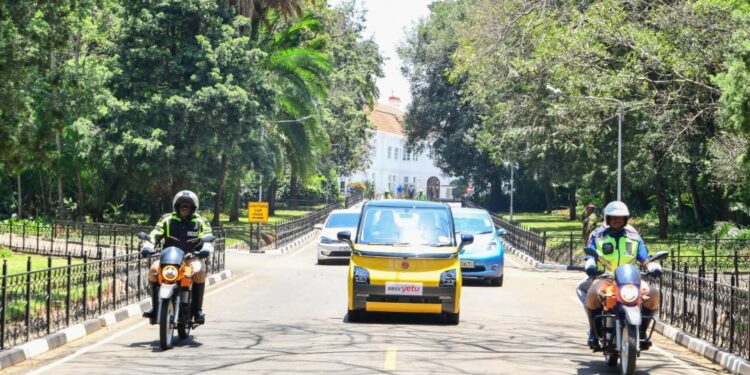In the bustling streets of Nairobi, individuals like John Mwangi are transforming their lives by using affordable, imported used cars. However, this growing reliance on second-hand vehicles comes with a significant environmental cost. This article explores the impact of used cars on Kenya’s ecological landscape, shedding light on the need for sustainable practices in the automotive sector.
Global Trends in Used Vehicles
A recent report by the United Nations Environment Programme (UNEP) titled “Used Vehicles and the Environment: A Global Overview of Used Light-Duty Vehicles” highlights the global surge in the import of used cars.
The report predicts a doubling of the global fleet of light-duty vehicles by 2050, with 90% of this growth occurring in low- and middle-income countries. This section delves into the implications of such trends and their environmental consequences.
Environmental Hazards of Unregulated Used Car Imports
The UNEP report revealed that about two-thirds of the 146 countries studied have “weak” or “very weak” policies regulating the import of used vehicles. If subjected to the standards of their exporting countries, many of these vehicles would not be deemed roadworthy. This section examines the environmental hazards of importing and operating vehicles that fail to meet proper environmental and safety standards.
A Call for Regulation: UNEP Urges Action on Used Vehicle Trade
With vehicle emissions contributing significantly to urban air pollution, UNEP emphasizes the urgent need for exporting and importing countries to regulate trade and eliminate abuses.
The report underscores the positive impact of regulated trade on the environment, people’s lives, and prosperity. This section discusses UNEP’s recommendations and the potential benefits of enforcing stringent regulations.
Kenya’s Response and the Road Ahead: Balancing Mobility and Ecology
Highlighting recent efforts, this section discusses the directives issued by the Economic Community of West African States, with UNEP support, to curb vehicle emissions and improve fuel efficiency in 15 African countries. These directives, which restrict the import of light-duty vehicles over five years old and aim to double car efficiency by 2030, represent a significant step towards reducing greenhouse gas emissions in the region.
The Road to Sustainable Transportation
Examining the quality of used vehicles being exported, the Netherlands, a major African exporter, discovered that many vehicles fell below emission standards and needed a valid roadworthiness certificate.
This section explores the need for exporting countries to address the quality of used vehicles, focusing on the Netherlands’ efforts to improve standards and collaborate with other European nations.
Balancing Affordability and Environmental Impact
This section discusses the delicate balance between economic necessity and environmental responsibility in Kenya’s automotive landscape, where affordable used cars play a crucial role in people’s lives.
It addresses the potential for Kenya to implement forward-thinking policies, similar to countries like Morocco and Mauritius, which have successfully gained access to high-tech, environmentally friendly vehicles.
Conclusion:
In conclusion, the rise of used vehicles in Kenya poses both opportunities and challenges. Balancing the economic benefits with the environmental impact requires a collaborative effort from both importing and exporting countries. As Kenya strives for sustainable transportation, regulatory measures, and environmentally conscious policies become imperative for a greener and healthier automotive future.
Original Article:




